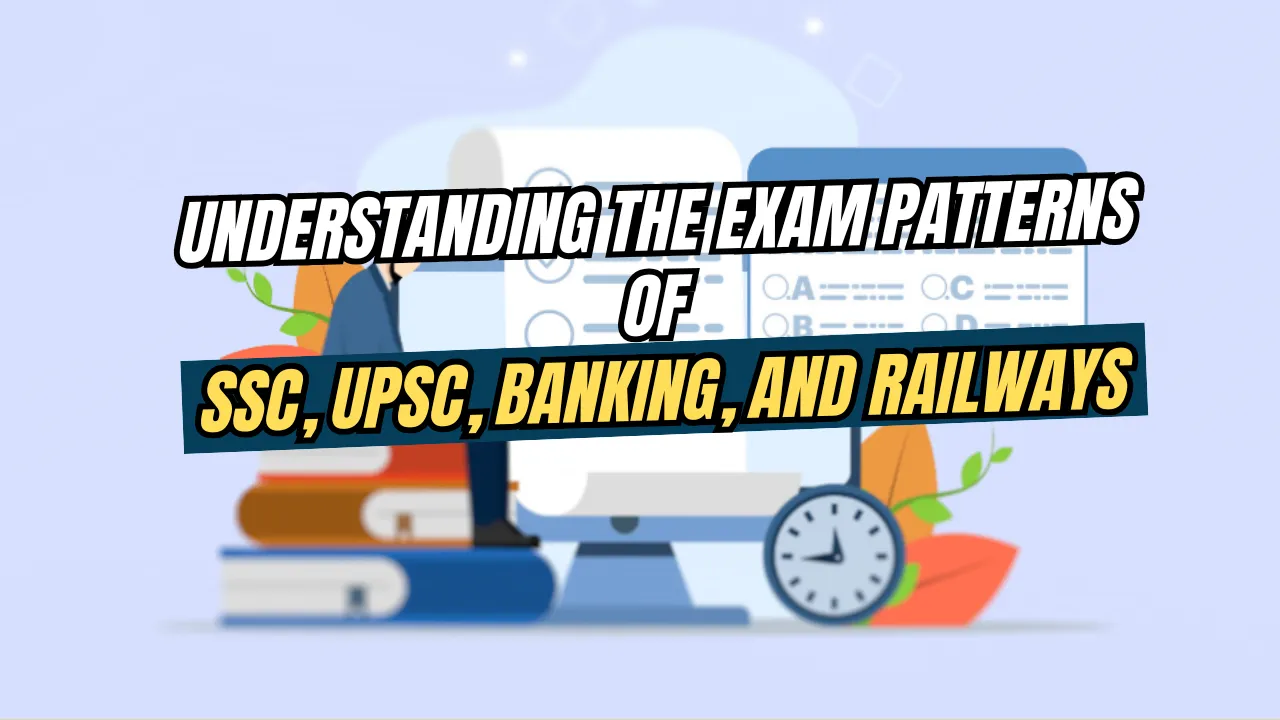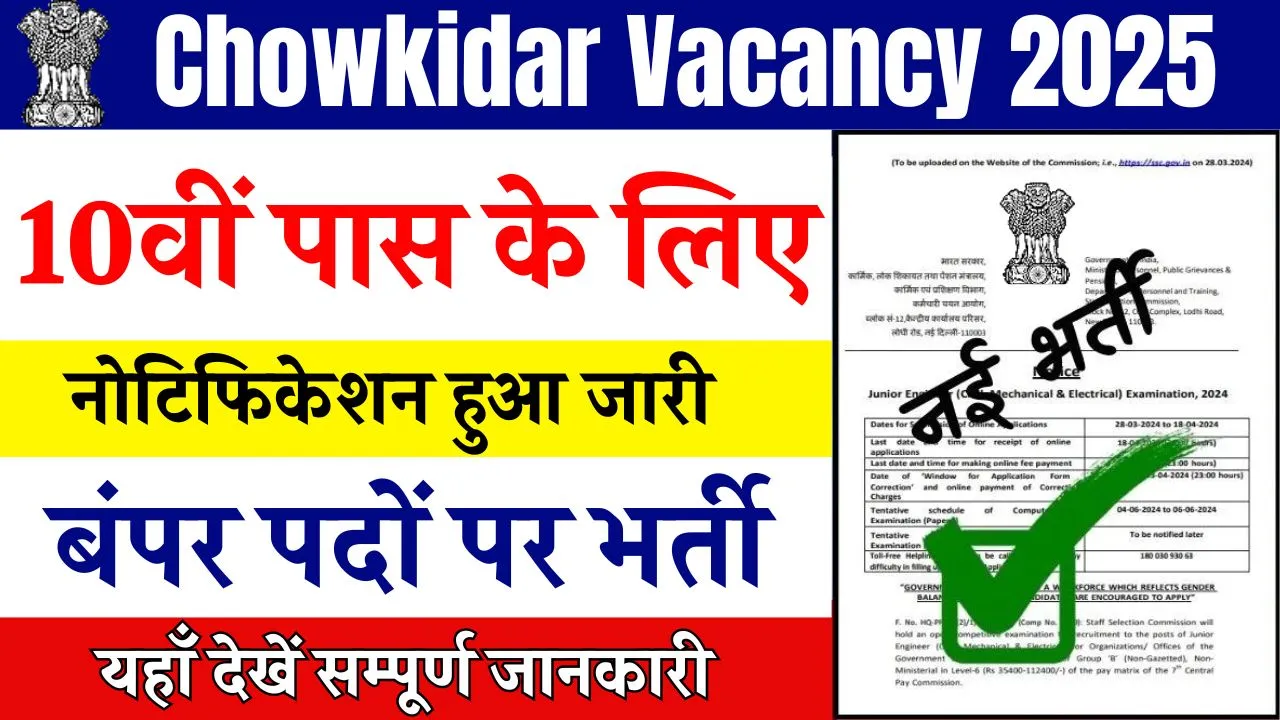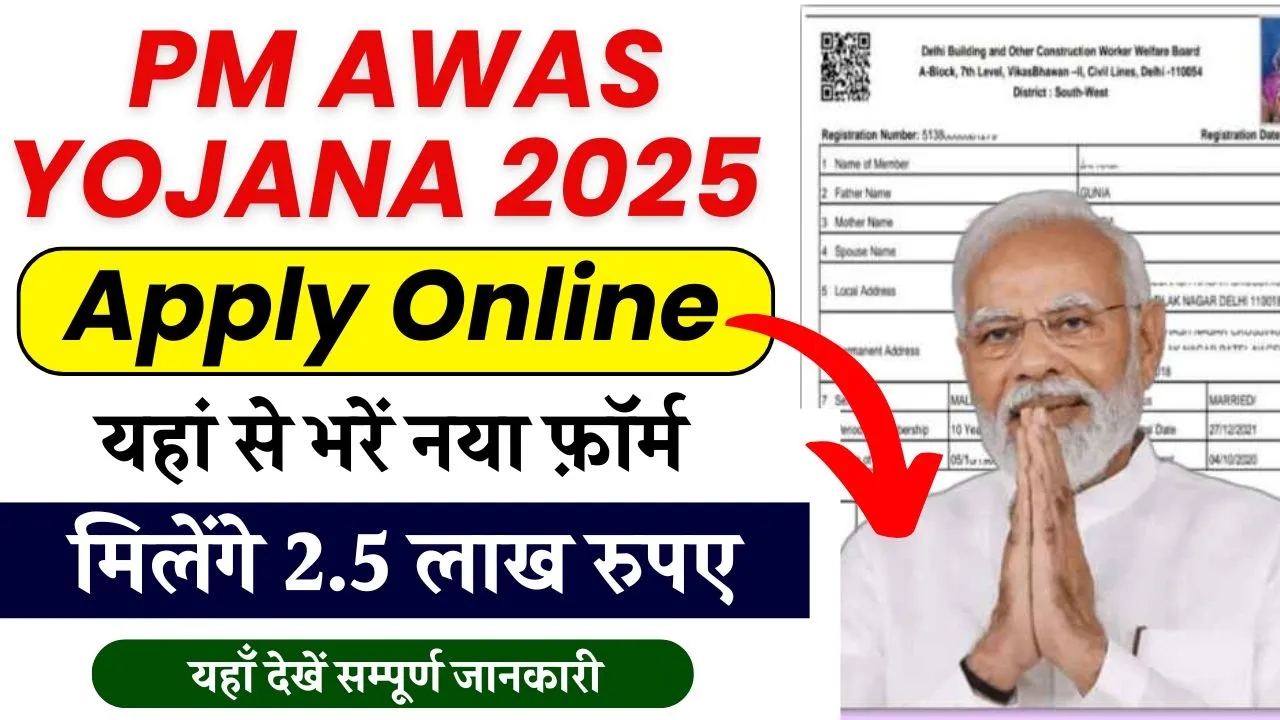Government exams in India are known for their vast syllabi, multi-stage processes, and intense competition. If you are preparing for exams conducted by major recruitment bodies like SSC, UPSC, Banking, or Railways, understanding their exam patterns is crucial. Each exam follows a unique structure tailored to assess specific skills and knowledge. Knowing the pattern well in advance allows candidates to plan their preparation strategy effectively, manage time wisely, and avoid surprises on the exam day.
In this guide, we will break down the exam patterns of SSC, UPSC, Banking, and Railways to help you gain a clear understanding of what to expect.
Exam Patterns of SSC, UPSC, Banking, and Railways
Each exam body has a distinct selection process, designed to test specific skills. The exam patterns of SSC, UPSC, Banking, and Railways differ in terms of exam stages, question formats, subjects covered, and evaluation criteria. For instance, SSC exams emphasize speed and accuracy through objective-type tests, UPSC exams test analytical and descriptive abilities, Banking exams focus on problem-solving and time management, while Railway exams evaluate technical skills along with general knowledge. Understanding these patterns is crucial to tailor your preparation strategy and excel in each exam’s unique demands.
Overview Table
| Exam Body | Stages | Subjects Covered | Key Highlights |
| SSC | Multiple stages: CBT (Tier 1, Tier 2), Skill Tests, Document Verification | General Intelligence, Reasoning, Quantitative Aptitude, General Awareness, English Comprehension | Emphasizes speed and accuracy; negative marking applied; pattern varies based on the specific exam |
| UPSC | Three stages: Prelims, Mains, Personality Test (Interview) | General Studies, CSAT, Optional Subjects, Essay writing | Analytical, descriptive, vast syllabus; focus on depth of knowledge |
| Banking | Three stages: Preliminary Exam, Main Exam, Interview (for PO posts) | Quantitative Aptitude, Reasoning Ability, English Language, General Awareness, Computer Aptitude | Sectional timing, focus on speed, accuracy, and problem-solving |
| Railways | CBT (multiple stages), Skill Tests, PET (for specific posts), Document Verification, Medical Examination | Mathematics, Reasoning, General Awareness, General Science | Varies by position; technical & non-technical roles; practical assessments like PET included |
Exam Pattern of Staff Selection Commission (SSC)
The Staff Selection Commission (SSC) conducts several popular exams, including SSC CGL, CHSL, MTS, and GD Constable, each with a slightly different pattern.
Common Pattern:
- Computer-Based Tests (CBT)
Most SSC exams have Tier 1 and Tier 2 CBT stages, where candidates face multiple-choice questions. - Skill Tests (where applicable)
Exams like SSC CHSL may include typing tests or data entry tests. - Document Verification
After clearing CBT and skill tests, shortlisted candidates must go through document verification.
Subjects Typically Covered:
- General Intelligence & Reasoning
- General Awareness
- Quantitative Aptitude
- English Comprehension
Key Points:
- Negative marking is common, with penalties for incorrect answers.
- Emphasis on speed and accuracy.
- The pattern may slightly vary depending on the specific SSC exam.
Exam Pattern of Union Public Service Commission (UPSC)
The UPSC Civil Services Examination (CSE) is one of the toughest and most prestigious exams in India.
Three Stages:
- Preliminary Examination (Objective type)
- Two papers:
a. General Studies Paper-I
b. CSAT (Civil Services Aptitude Test) – qualifying in nature.
- Two papers:
- Main Examination (Descriptive type)
- Nine papers including Essay, General Studies, and Optional Subjects.
- Candidates are tested on analytical writing, descriptive answers, and in-depth knowledge.
- Personality Test (Interview)
- Aimed at assessing personality traits, leadership, ethical standards, and communication skills.
Key Points:
- Vast syllabus covering Indian Polity, History, Geography, Economy, Environment, and more.
- Analytical thinking and understanding of topics are tested.
- Prelims act as a qualifying round; Mains and Interview carry weight for final selection.
Exam Pattern of Banking Exams
Banking sector exams, like IBPS PO/Clerk, SBI PO/Clerk, and RBI Grade B, have a standardized structure.
General Structure:
- Preliminary Examination (Objective type)
- Tests reasoning, English language, and quantitative aptitude.
- Short duration with sectional timing.
- Main Examination (Objective & Descriptive type)
- Covers additional areas like General Awareness (focused on banking), Computer Aptitude, and essay/letter writing.
- Interview (for PO positions)
- Only applicable for officer-level posts.
Common Subjects:
- Quantitative Aptitude
- Reasoning Ability
- English Language
- General Awareness (with banking emphasis)
- Computer Aptitude
Key Points:
- Sectional timing makes time management critical.
- Focus on speed, accuracy, and problem-solving skills.
- Descriptive tests check writing skills in the main stage.
Exam Pattern of Railway Recruitment Board (RRB) Exams
RRBs conduct various exams for posts such as NTPC, Group D, JE, and ALP. Each position has a slightly different pattern.
General Pattern:
- Computer-Based Tests (CBT)
- Multiple stages depending on the position.
- Skill Tests / Aptitude Tests (as applicable)
- Includes typing, technical knowledge, or psychological tests.
- Physical Efficiency Test (PET)
- For roles like Group D, requiring physical tasks like running and lifting weights.
- Document Verification and Medical Examination
Common Subjects:
- Mathematics
- General Intelligence and Reasoning
- General Awareness
- General Science
Key Points:
- RRB exams evaluate both technical skills and general knowledge.
- For physically demanding posts, candidates must also pass PET.
- Emphasis on both academic knowledge and practical abilities.
Key Takeaways
- SSC exams test reasoning, general awareness, quantitative aptitude, and language skills, emphasizing speed and accuracy.
- UPSC exams demand analytical ability, descriptive writing, and an in-depth understanding of a broad syllabus.
- Banking exams focus on speed, accuracy, and financial awareness with a combination of objective and descriptive tests.
- RRB exams assess a mix of reasoning, mathematics, general awareness, and in some cases, physical fitness and technical skills.
Always stay updated with official notifications, as patterns and syllabi can change.
FAQs
1. Is there negative marking in SSC, UPSC, Banking, and Railways exams?
Yes, SSC, Banking, and Railway exams generally include negative marking. UPSC Prelims also has negative marking, but Mains is descriptive with no negative marking.
2. How is the UPSC exam pattern different from SSC?
UPSC has a three-stage process including objective prelims, descriptive mains, and an interview. SSC primarily focuses on objective-type questions, skill tests, and document verification.
3. Are banking exams tougher than SSC exams?
Both have their own challenges. Banking exams are time-bound and emphasize speed and accuracy, while SSC exams may have a broader range of subjects but offer more preparation time.
4. Do all RRB exams include physical tests?
No, only specific posts like Group D and ALP require PET. Others like NTPC and JE focus more on CBT and skill tests.
5. Can I prepare for SSC, Banking, and Railway exams together?
Yes, many subjects overlap like Reasoning, Mathematics, and General Awareness. However, syllabus details and exam patterns differ, so a tailored strategy is essential.
Final Thought
Understanding the exam patterns of SSC, UPSC, Banking, and Railways is the first step toward smart preparation. Each exam has its own unique structure, subjects, and difficulty level. By familiarizing yourself with the pattern, you can create an effective study plan, focus on your weak areas, and manage time efficiently. Stay updated with official notifications, stay consistent, and success will follow.







